Washington Denounces Public Hanging Of Iranian Protester
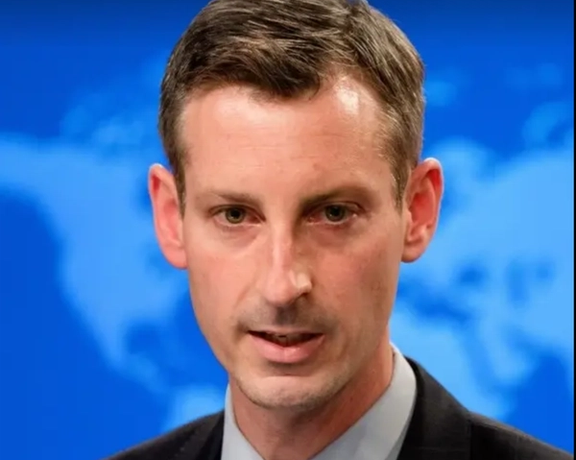
The United States has slammed Iran for hanging a protester in public, saying the regime’s use of harsh sentencing and public execution is meant to intimidate the people.

The United States has slammed Iran for hanging a protester in public, saying the regime’s use of harsh sentencing and public execution is meant to intimidate the people.
State Department spokesperson Ned Price told a briefing on Monday that “we denounce this draconian treatment in the strongest terms. These harsh sentences and now the first public execution...are meant to intimidate Iran's people. They're meant to suppress dissent. And they simply just underscore how much Iran’s leadership fears its own people.”
The Islamic Republic hanged a second protester, Majidreza Rahnavard in less than a week in public on Monday after charging him with killing two members of security forces.
Majidreza Rahnavard is the Islamic Republic’s latest victim, said Ned Price, adding that he was swiftly executed after what can only be described as a sham trial.
“We understand that he was also executed publicly; he was hanged in public. The regime has rounded up and detained thousands of people for their involvement in these protests. Many of them now face harsh sentences, including the death penalty and sham trials that lack any due process,” Price went on to say.
He reiterated that the US used its human rights authorities to hold accountable those who are responsible for this brutal crackdown.
Washington has imposed some sanctions for Tehran’s human rights violations since September, but still says it is ready for diplomacy over Iran’s nuclear program.
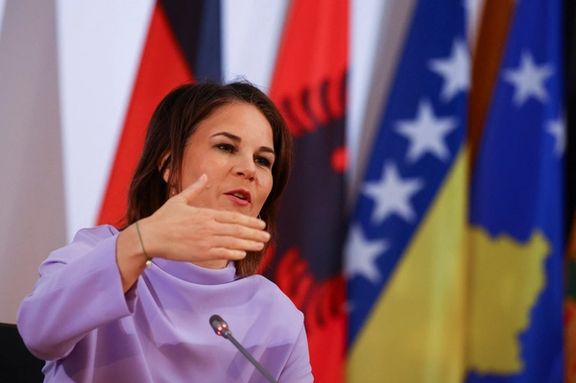
The EU Monday designated 20 people and Iran’s state media over reported human rights abuses, along with eight people or entities over sending drones to Russia.
European Union foreign policy chief Josep Borrell called the package “very tough,” and an EU foreign minister’s statement criticized a “brutal and disproportionate use of force” against protests. German Foreign Minister Annalena Baerbock said the sanctions would target “in particular those who are responsible for the executions, the violence against innocent people...especially the Revolutionary Guards.”
Iran Monday executed the second person over the unrest, which has seen the deaths of 488 protestors and 62 members of the police or security forces, according to Norway-based HRANA.
Among those sanctioned Monday under the human-rights rubric were Major-General Abdolrahim Mousavi, commander-in-chief of Iran’s army. A range of designated regional commanders of the Revolutionary Guards (IRGC) were largely concentrated in the mainly Kurdish northwest, which along with the Baluchi south east has seen the most violence. IRGC commanders in the provinces of Tehran, Mazandaran, Alborz, Markazi, were also listed along with Sistan-Baluchistan’s provincial police chief.
As well as designating state broadcaster IRIB, the EU listed Peyman Jebelli, its director, IRIB’s deputy director, its head of foreign services, and Ali Rezvani, who is a "journalist-interrogator" of political prisoners. Ahmad Khatami, Tehran prayer leader, was added, the EU statement said, as the cleric “with a large audience…leverages his position to verbally attack and incite violence against protesters.” All designated individuals risk the loss of assets in the EU.
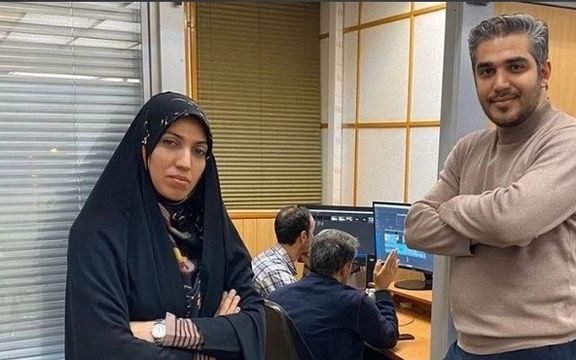
The EU in November sanctioned Hossein Salami, the IRGC commander, and Amir Ali Hajizadeh, commander of the IRGC aerospace force, as well as the aerospace force and a military company, over sending military drones to Russia, but the EU has not sanctioned the IRGC as a whole. The United States in 2019 listed the Guards as a ‘foreign terrorist organization’ as part of its ‘maximum pressure’ sanctions, the only occasion it has designated part of a state’s armed forces.
Under Monday’s new sanctions, the EU designated four additional individuals, including the head of Iran’s air force, over the drones, as well four military contractors or design companies.
The EU foreign ministers’ statement said the drones were “being used indiscriminately by Russia against Ukrainian civilian population and infrastructure causing horrendous destruction and human suffering.” The ministers agreed another €2 billion ($2.1 million) in military aid for Ukraine, adding to the €2 billion already sent, while a further package of sanctions on Russia, the EU’s ninth, is reportedly being held up by Hungary. The US has sent Ukraine $20 billion in weapons, and the UK $2.3 billion.
‘Turning Iran into a second North Korea’
The new EU sanctions on Iran over human rights abuses brought to 166 individuals and 12 entities the total it has sanctioned on such grounds. Those designated in the last batch on November 14 included provincial police commanders in Kurdish and Baluchi regions, the army’s ground-forces commander, the minister of the interior, and members of the Tehran ‘morality police.’
With the rial falling further as US ‘maximum pressure’ continues and unrest undermines business confidence, Hannah Neumann, a German Green Party member of the European Parliament, told Iran International in an interview she saw no justification for European states breaking off diplomatic links or expelling Tehran from United Nations bodies.
“I don’t think it helps protestors in Iran, if we turn the country into a second North Korea by closing all our embassies,” she said. “This is my personal opinion. Others have a different one. I respect that. Isn’t that what we all fight for, democracy and freedom of expression?”
Neumann claimed that “what is happening in Iran is the world’s first feminist revolution.” She said it would give hope to women in Egypt, Afghanistan and elsewhere in the Middle East as well as around the globe.
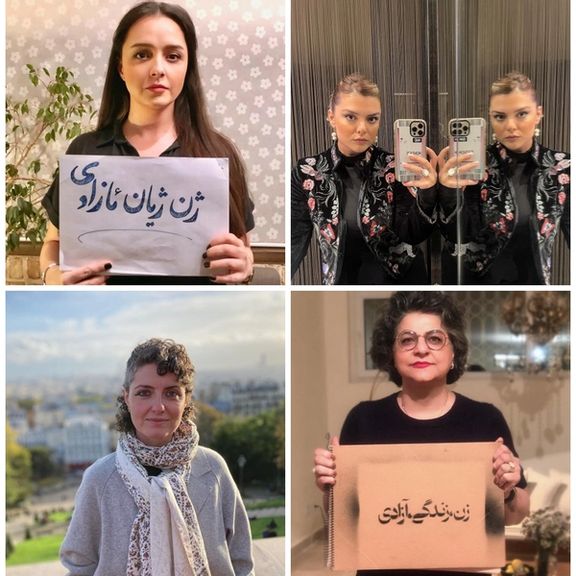
A group of Iranian artists have formed an association to support the rights of political prisoners, and artists who were injured or imprisoned during the ongoing protests.
The association called “Iranian Film and Theater Artists Abroad” is formed by 17 theater and cinema writers, filmmakers, and actors, and so far over 100 other artists inside and outside the country have joined it.
In a statement on Monday, the association said, “the release of political prisoners and artists, and putting international pressure on the Islamic Republic to stop issuing death sentences are among the most important demands of the association.”
As part of their statement, the signatories condemned the crackdown on protests, specifically the suppression of theater and film artists, saying, “The time has come to prevent more crimes by the Islamic Republic with launching massive protests and taking steps together with the people of Iran to end the existence of this repressive system.”
The statement has been endorsed by reputable international artists such as English actor Benedict Cumberbatch, English filmmakers Ken Loach, Mike Leigh, Claire Simon, Mike Figgis, and Clio Barnard, Austrian theater director Stephan Bruckmeier, and American filmmakers Jeff Preiss and Deborah Hoffmann.
Since the start of nationwide protests in mid-September regime forces have killed nearly 500 protesters including 63 children and 29 women.
Many artists in various fields have been threatened due to their solidarity with people's protest movement and dozens arrested.
In the meantime, unconfirmed reports also say that Hossein Mohammadi, a 26-year-old theater actor has been sentenced to death.
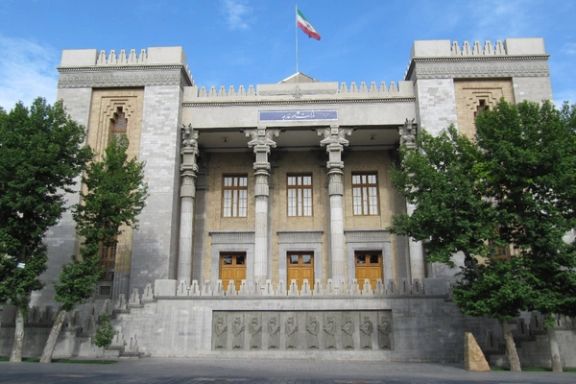
Iran's has sanctioned European Union officials and entities over their alleged “support for terrorism and violation of human rights against the people of Iran.”
In a statement published Monday, the foreign ministry listed four institutions and 13 individuals in the United Kingdom for their “deliberate actions in supporting terrorism..., hatred that causes riots, violence, terrorist acts, and human rights violations against the Iranian people.”
Some of the sanctioned individuals include Ken McCallum, Director General of the UK’s domestic spy agency MI5, as well as Chief of the Defense Staff Tony Radakin.
In a separate statement, the Iranian foreign ministry also announced sanctions on several EU officials and entities including Radio Farda, the Persian Service of Radio Free Europe in Prague, Netherlands-based Persian Radio Zamaneh, and Charlie Hebdo magazine.
Some current and former EU politicians including Hannah Neumann and Claudia Roth are also included in the list.
The sanctions include ban on issuing visas and entering Iran and confiscation of their property and assets in Iran, which would affect Iranian expats working for the two broadcasters.
The UK and European countries have been vocal critics of Iran’s crackdown on protestors, issuing multiple rounds of sanctions against the Islamic republic.
The sanctions coincide with Iran carrying out its second execution over the protests. Majidreza Rahnavard, 23, was publicly hanged Monday for allegedly stabbing two members of Basij militia in the city of Mashhad.
European Union foreign ministers on Monday condemned Iran for its crackdown on anti-government protests, moving ahead with a new package of sanctions meant to raise pressure on Tehran.
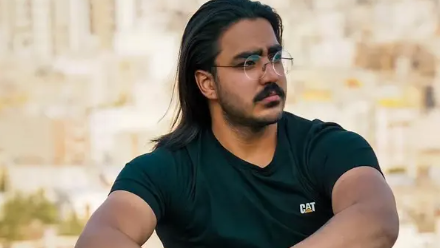
The Islamic Republic has hanged a second protester in less than a week in public on Monday after charging him with killing two members of security forces.
"Majid Reza Rahnavard was hanged in public in (the religious Shi'ite city of) Mashahd this morning ... he was sentenced to death for 'waging war against God' after stabbing to death two members of security forces," Mizan news website run by the country’s hardliner Judiciary said.
The hanging took place despite domestic and international outcry over the execution of the first protester, Mohsen Shekari, on December 8 who was charged with injuring a government security agent and blocking a street.
Both executions are seen as acts of intimidation against protesters, especially Rahnavard’s hanging in public.
Nationwide protests, in their third month, erupted after the killing of 22-year-old Kurdish Iranian woman Mahsa Amini on September 16 in the custody of morality police enforcing strict mandatory dress code laws.
The demonstrations have turned into a popular revolt by furious Iranians from all layers of society, posing one of the worst legitimacy challenges to the clerical leadership since the 1979 revolution.
The government has used thousands of well-armed regular and irregular forces to repress the protests, using severe beating, firing shotguns that have killed and blinded hundreds of people and even military weapons.
Activists on social media criticized the execution of the 23-year-old Rahnavard as "a criminal act" by the clerical establishment to deter dissent.
The United States and a host of European countries and institutions had strongly condemned the first execution. Many Iranians living in Europe demanded that the European Union and its members take tougher measures against the Islamic Republic, including severing diplomatic ties and closing embassies.
Rights groups have said Shekari was tortured and forced to confess. All tirals of detained protesters take place behind closed doors without due process, including the right of the accused to have their own defense lawyers.
Amnesty International has said Iranian authorities are seeking the death penalty for at least 21 people in what it called "sham trials designed to intimidate those participating in the popular uprising that has rocked Iran".
Iran's state media aired footage of a man, which they identified as Rahnavard, stabbing another man who fell against a parked motorcycle and then stabbing another person immediately after.
Mizan said Rahnavard was arrested when trying to flee the country 23 days ago. It added that his sentence was upheld by a higher court.
Rights group HRANA said that as of Sunday 488 protesters had been killed, including 68 minors. It said 62 members of the security forces had also been killed. As many as 18,259 protesters are believed to have been arrested, it said.
While the United Nations says the protests have cost more than 300 lives, a top Iranian state security body has said that 200 people, including members of the security forces, had died in the unrest.
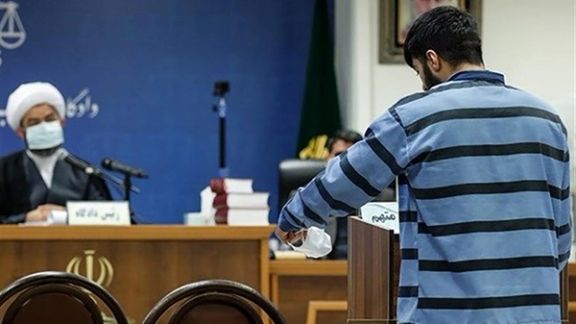
As the Islamic Republic is adamant to execute more protesters, some Islamic law experts are voicing opposition to the Judiciary’s interpretation of Sharia.
Iranian Shia theologian Morteza Moghtadaei -- the deputy chairman of Society of Seminary Teachers of Qom told Iran’s Labour News Agency Sunday that the judicial system does not adhere to Islamic law, or sharia, regarding limitation to issuing death sentence.
Himself a former Revolution Court judge and head of Supreme Court of Iran, Moghtadaei said "In cases where a person does not fight with a group and only fights with one person, that person is not called a mohareb," referring to the charge of "moharebeh" that the Islamic Republic’s judiciary has issued for many protesters.
“Moharebeh” is an Islamic-Arabic term that in the lexicon of the Iranian regime means “fighting God” and its punishment is death.
The judiciary announced on Thursday the execution of Mohsen Shekari, a twenty-three-year-old protester convicted of injuring a security guard with a knife and closing off a street in the capital Tehran. He was charged with Moharebeh that along with another Islamic concept translated as “corruption on earth” are used as broad concepts by the regime to issue maximum sentences against opponents.
Clerical judges who take orders from the hardliner Judiciary convict people to death without a real trial, often with no defense lawyers and behind closed doors. The defendants have no way of challenging state evidence or introducing witnesses.
Moghtadaei elaborated that "If a mohareb kills someone, he should get the death sentence, but if he only threatens and intimidates, even if he is convicted, he should not get a death sentence; which means although he is a mohareb but should not be executed.”
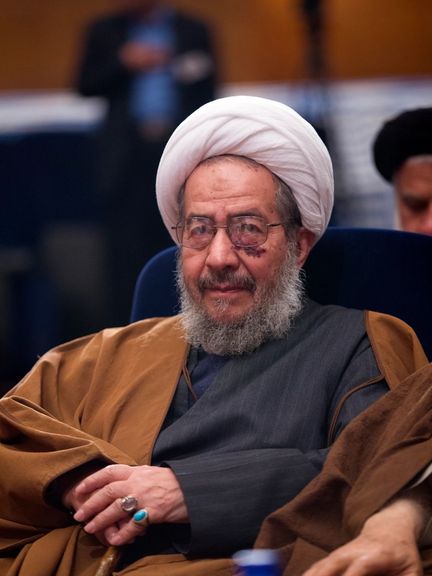
Mohammad-Ali Ayazi, another Shia scholar and a seminary teacher, also said that everyone has the right to protest and can defend himself against government agents who want to prevent him. That is not committing ‘moharebeh’, he underlined.
He added that "In an important issue such as execution, it is important that an independent lawyer defends the accused and that a public hearing is held in the presence of a jury." If these principles are not respected, the cycle of violence will continue, Ayazi noted.
Prominent Iranian lawyer Nemat Ahmadi also criticized the judiciary for the prompt decision to issue death sentences for some of the detained protesters, saying that death sentences cannot be issued so haphazardly. He said that according to Article 279 of the Islamic Penal Code, a person is called a mohareb when he takes up a weapon against the people to cause insecurity by threatening others’ lives, property and honor. “Those who oppose the government are not recognized as mohareb,” he explained.
He added that many Islamic scholars believe the term should be used to describe bandits who endanger the security of the society, considering the historic context in which the term came into existence in the first place. It is very important to determine the use of the term with a lot of caution.
Mohammad-Hossein Saket, another lawyer and law researcher, said that “in general, it is not good to mix legal issues with political issues and make hasty decisions.”
In a speech after the execution of the first protester, President Ebrahim Raisi announced that "the trial and punishment of the protesters" will continue. Also, Ahmad Khatami, a hardliner cleric and Friday prayer Imam expressed his gratitude “for the decisiveness of the Judiciary, which sent the first rioter to the gallows.” Judiciary spokesman Masoud Setayeshi had announced Tuesday that five more people indicted in the killing of a Basij militia member, Rouhollah Ajamian, were sentenced to death.
Shekari’s hanging after a hasty and unfair trial has sparked deep anger among Iranians, who believe his killing was meant to instill fear among the people, and world leaders who describe the act as the acme of atrocity and a nadir of humanity.
Iran’s top Sunni religious leader has also slammed the executions of protesters as violations of Sharia law and warned the authorities that this will not stop the antigovernment movement.
Nationwide protests that erupted after the death of 22-year-old Kurdish Iranian woman Mahsa Amini on September 16 represent one of the biggest challenges to the Islamic Republic since its establishment in 1979. So far, around 500 civilians have been killed by security forces and at least 18,000 arrested. While many have been released, around 1,500 face criminal charges, and at least 80 detainees face the death sentence.